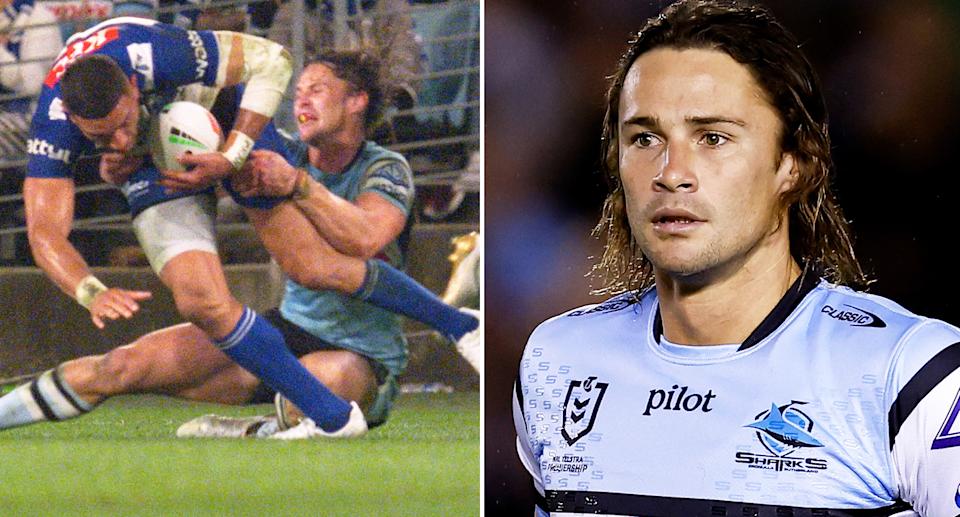
LeagueNews.co | Cooper McEnroe
As the Cronulla Sharks weigh their options regarding Nicho Hynes and his one-game ban at the NRL judiciary, a recent complaint from the Melbourne Storm is increasingly relevant. Hynes received an unexpected suspension on Sunday and is slated to miss Cronulla's elimination final against the Roosters unless he opts to challenge the ban and wins.
The Sharks must make a decision by midday on Monday on whether to contest Hynes's one-match ban, imposed for a hip-drop tackle that injured Canterbury winger Marcelo Montoya during Saturday's match. Should Hynes appeal and fail, he would incur an additional week on his suspension, resulting in a two-game absence.
This would mean that if the Sharks win against the Roosters, Hynes would still be sidelined, or if they lose, he would be banned for the first game next season. Last month, Melbourne Storm CEO Justin Rodski criticized the current judiciary model, arguing that it unfairly penalizes players for contesting their cases.
Rodski expressed that it's illogical and unjust that players face an additional week of suspension if they don't win their appeal, even when merely challenging the grading of a charge. "What I'd like to see is a review of the judiciary system around the way that a player is unable to challenge to downgrade a charge without risking the harsh penalty of an additional game," he remarked following the Storm's own two-game ban for skipper Harry Grant.
He emphasized, "The grading is an incentive to not challenge, but at the same time it's not a fair reflection of natural justice. While I understand and appreciate why it's been set up that way ... and I agree with the early plea in principle." Rodski noted the dilemma, stating that in situations like this, players should be able to contest a downgrade without facing a severe consequence. "For any player at any club, to miss a final off the back of challenging that downgrade, it's not worth it," he added.
Rodski proposed a different approach could involve imposing a financial penalty for a losing appeal rather than extending the suspension. He suggested, "That would be a $5000 to $10,000 fine, so there's still a disincentive to do it. But in the extremes where a club and the player feel it's justified, they aren't risking time on the field, they're risking a financial penalty."
